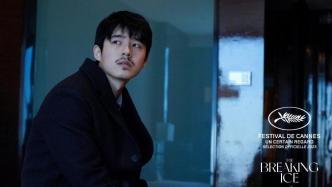
Three young people from different cities, each with their own minds, some are sad, some are at a loss. They met in a small border town in the ice and snow, wandered together in the city, and then went to Changbai Mountain together, and met a bear...
This is the story of the movie Burning Winter. Director Chen Zheyi didn't have a script when he was preparing to shoot the film. After he wrote a two-page script outline, he came to China from Singapore and was quarantined for 14 days after landing. The epidemic has taken away too much sense of control over life, especially for a director, Chen Zheyi, who was beaten back to life, said that he had almost experienced an "existential crisis".
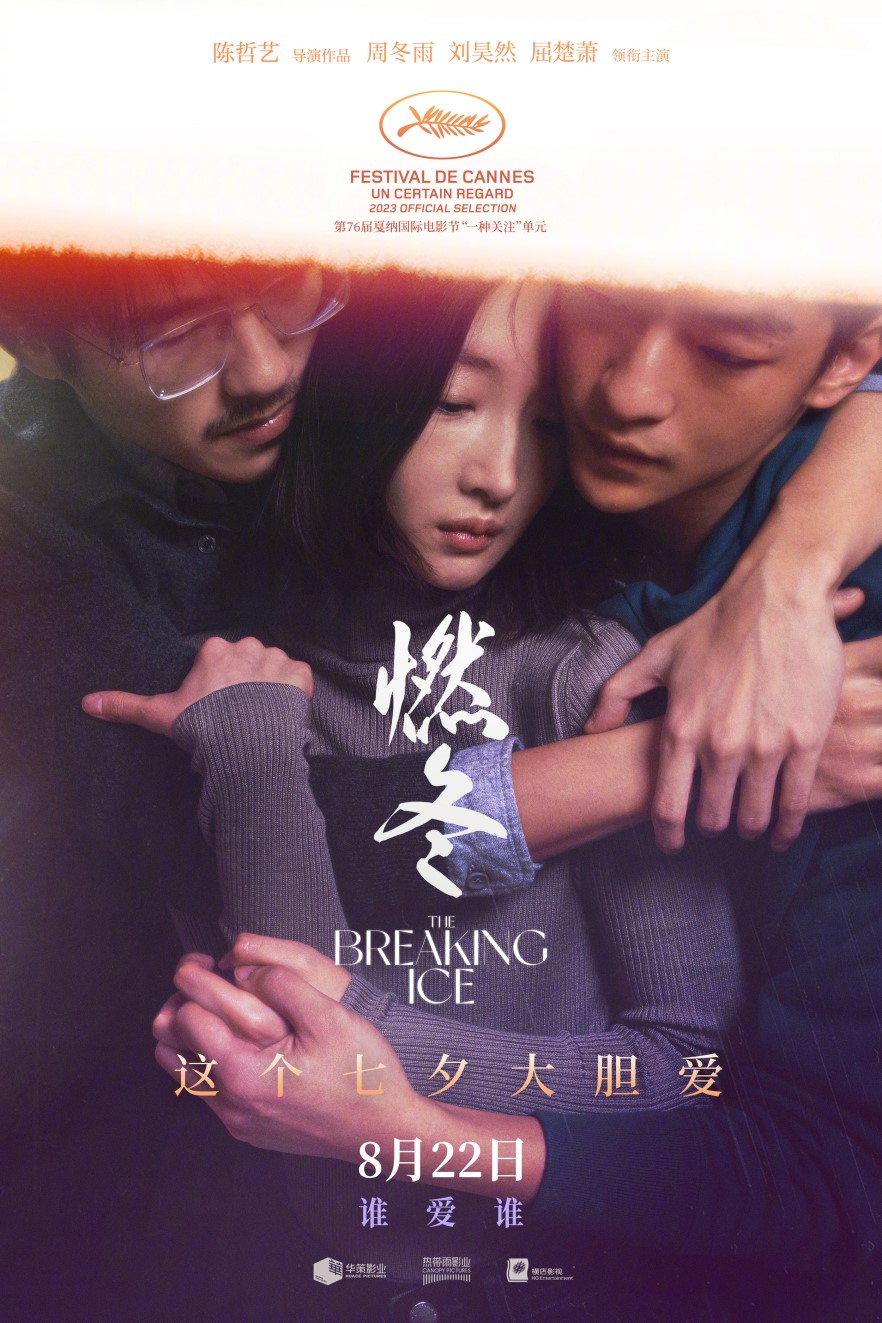
Burning Winter poster
Chen Zheyi is the kind of person who has been married for several years and is still asked by his wife, "Which one is more important, me or the movie?" He loves movies like his life, but he was suddenly deprived of the status of a "director" because of the public health incidents experienced by the world. And when people's eyes naturally focus on online movie viewing and short videos, more and more movie theaters have been closed one after another, and various projects have been cancelled. existential anxiety." This anxiety urged Chen Zheyi to use practice to prove, "I can still shoot, the movie still needs to be there, and people will go to the theater to watch movies."

"Parents Are Not Home" directed by Chen Zheyi won the Golden Photography Award (Director's First Film Award) at the 66th Cannes Film Festival in 2013
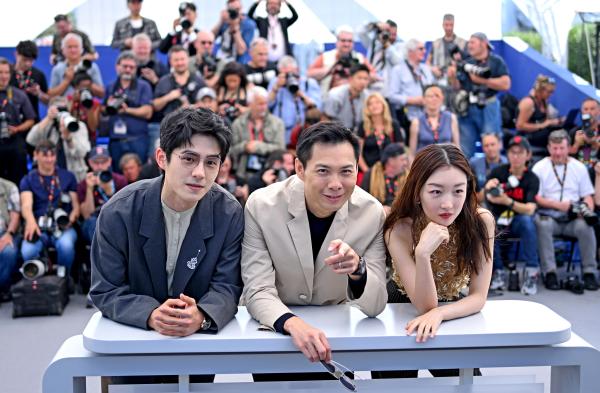
Chen Zheyi (middle) and "Burning Winter" starring Liu Haoran (left) and Zhou Dongyu appeared at the 76th Cannes Film Festival in 2023. The film was shortlisted for the "Un Certain Regard" unit
From the completion of "Parents Are Not Home" to the current "Burning Winter", Chen Zheyi officially became a feature film director, exactly ten years ago. The number of his film works is not too many, but since he won the Golden Photography Award in Cannes since his debut, Chen Zheyi has been regarded by the film industry as a leader of young Asian directors. "Tropical Rain", which has been polished for six years, has also swept many awards. The tenderness of exhaustion and alienation in the details of contemporary life has won Chen Zheyi many fans, and at the same time, film critics have labeled him a "mature old soul".
For a long time, he created according to his intuition. The immigrant society in Singapore gave him a vision of the relationship between people, careful observation and super high empathy, as if the camera should record such people and life.
"Parents Are Not Home" talks about the emotion between the foreign worker Filipino maid and the little boy, and glimpses the depression and anxiety of a middle-class family under the economic crisis; the taboo and warmth between the Malaysian Chinese teacher and the students in "Tropical Rain" cannot be concealed. The shaky confidence of a woman who lives alone and helpless in family and social life; after the epidemic, he went to Europe and the United States to start the creation of non-Chinese films. "Adrift Life" is the struggle of African refugees drifting on a Greek island looking back at the war and past scars .
There is a web woven by the times and macro perspectives in his films, but in the end they all fall into the detailed individual emotional experience. And in "Burning Winter", the "old soul" Chen Zheyi wants to talk to the young people of today.
Back in the days of epidemic isolation, he had a lot of time roaming on the Internet. He saw many official accounts and VLOGs of the UP masters of station B, and saw young people expressing their inner anxiety and frustration, "What I saw It's a kind of anxiety, a kind of anxiety, I didn't know much about it before, and then I have been studying this matter."
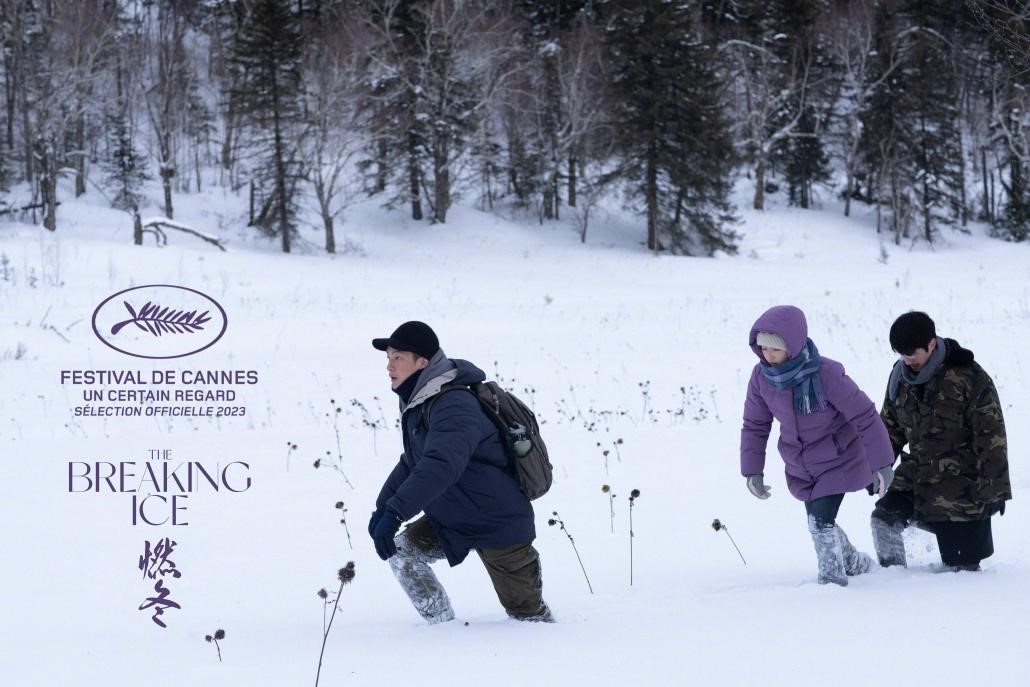
Stills of Burning Winter
"Burning Winter" is Chen Zheyi's last brand new attempt in his film career. The director who grew up in the tropics came here at will and set foot on the cold frontier land in northern China. He, as always, incorporated creative motifs such as the perspective of outsiders and the integration of multiple cultures into the story. The situation of the characters in the film, just like the title of the film, is a super-emotional experience where warmth and cold collide.
After the premiere of "A Kind of Concern" in Cannes this year, the Hollywood film media "The Wrap" praised Chen Zheyi for "creating a bright and shining "Ancestor and Zhan"-style improvisation, which is both contemplative and driving." Chen Zheyi likes the French New Wave. When he first conceived the relationship between the characters, he thought of this masterpiece of Truffaut. Some fans and audiences who have watched the movie joked that the relationship between three people in the movie is "Dream Northeast". The three people meet briefly and then leave. In the story, some are in love, some are in love, some are waiting for love, and some are embracing love. Most of the time, the emotions are ambiguous and unclear. "This is not a simple, sweet love movie." Chen Zheyi explained the movie to the audience on the day of its release.
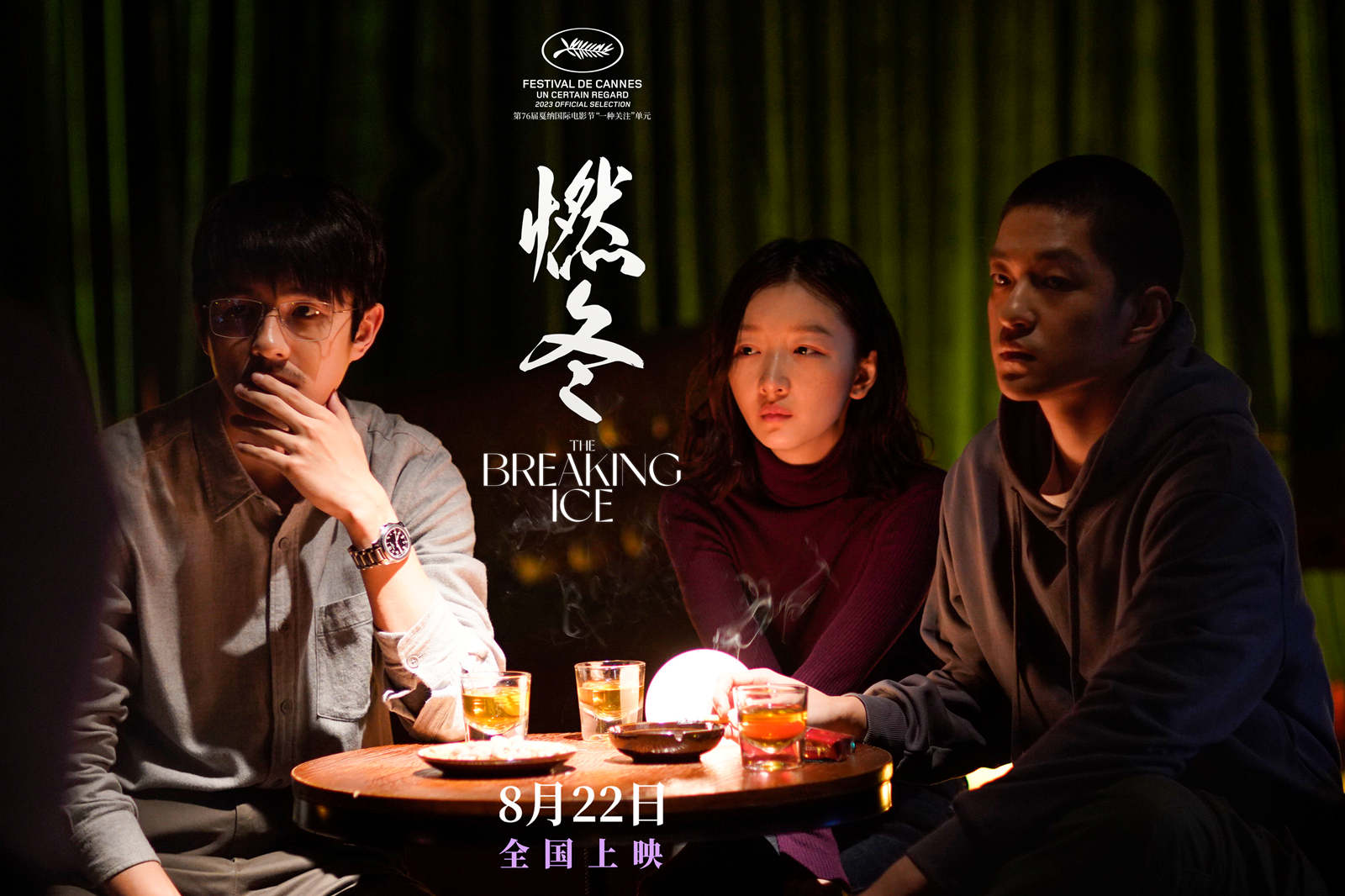
Stills of Burning Winter
This is the first time he has brought his feature film to domestic theaters, and he chose the Qixi Festival schedule. The public has inherent expectations for movies released at this time. Chen Zheyi hopes that the audience can enter the world of these young people with a more open and emotional attitude, "They are three independent, young, and small individuals, looking for a way out on the border of the soul. The state I want to capture is the same as There is no answer to emotion, but it must leave something behind, which can give people strength."
Another place that is completely different from the past is the freedom and sensibility of "Burning Winter". When he found the three actors Zhou Dongyu, Liu Haoran and Qu Chuxiao, he didn't have a complete script. In the past, the perfectionist Chen Zheyi had to polish a script for at least two or three years. Although the scene was not impromptu, the capture of the rehearsal by the hand-held camera with a strong sense of breath, and the emotional and emotional advancement mobilized by a lot of music made his film more objective and calm than before, showing unprecedented full emotional tension.
"It's the freest thing I've ever done," he said of the shoot. When he described this movie as "a love letter" that he hoped to heal contemporary young people, he was the first to be healed by this movie—when he finished shooting "Burning Winter" and entered "Drifting Life" In his creation, he seems to have passed through the "existential crisis" as a director, "I can see the more confident and relaxed self", but at the same time, in the face of the change of the trend of the whole era, the creator's powerlessness in it It seems to echo the theme and temperament of the movie.
During the release of the film, director Chen Zheyi accepted an exclusive interview with The Paper reporter, talking about this special and free creation, as well as his thinking about life and the world at the current stage.
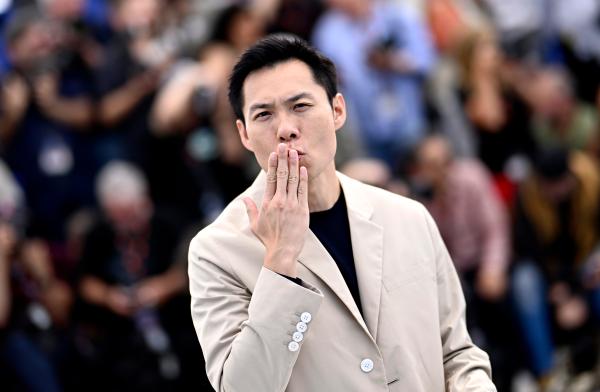
Chen Zheyi
【dialogue】
An 'Existential Crisis' During Quarantine
The Paper: Seeing that this movie originated from your depression during the epidemic, what kind of state was that? Were you aware of anything at that stage that you hadn't been aware of before?
Chen Zheyi: At that time, it was a big existential crisis for me, and I probably felt that I was about to give up being a director. At that time, I was always at home, shopping for vegetables, cooking, taking care of the children, and doing laundry. During the epidemic, I made a very personal short film "Love", which captured my feelings during the epidemic.
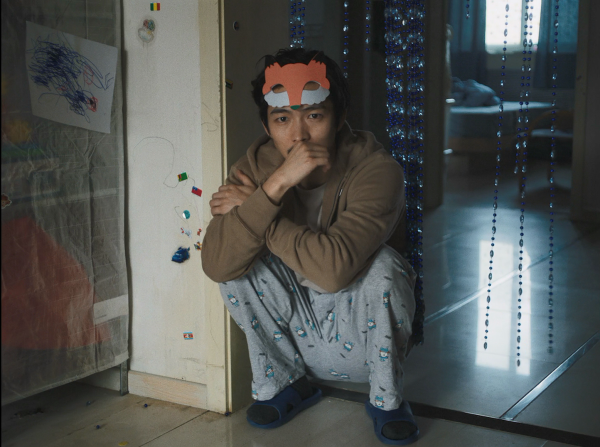
Stills of "Love Separation"
It's like a man loses his dignity completely, you lose an identity, an identity as a creator, as a director of a film. Who are you when all theaters are closed and no movies are being filmed? At that time, I found that apart from being able to cook, I had no other skills. Maybe I can barely go to the film school to teach, but what is the meaning of my existence?
And for me, the biggest blow at that time was that everyone started to watch short videos and online video platforms. I’m not sure that after the epidemic, people will go to the theater to watch a movie of mine. It’s detailed, restrained and quiet. Movie. Even now after the epidemic, I am still thinking about this issue, because maybe the viewing habits of all audiences have changed a lot.
The Paper: Is the theme of "Burning Winter" related to this experience?
Chen Zheyi: There are actually two reasons. The first reason is that "Tropical Rain" went to major film festivals in 2019 and was released in 2020, which was basically the year of the epidemic. At that time, almost wherever it was released, the cinema was closed, so it was a film that had no Works that are seen.
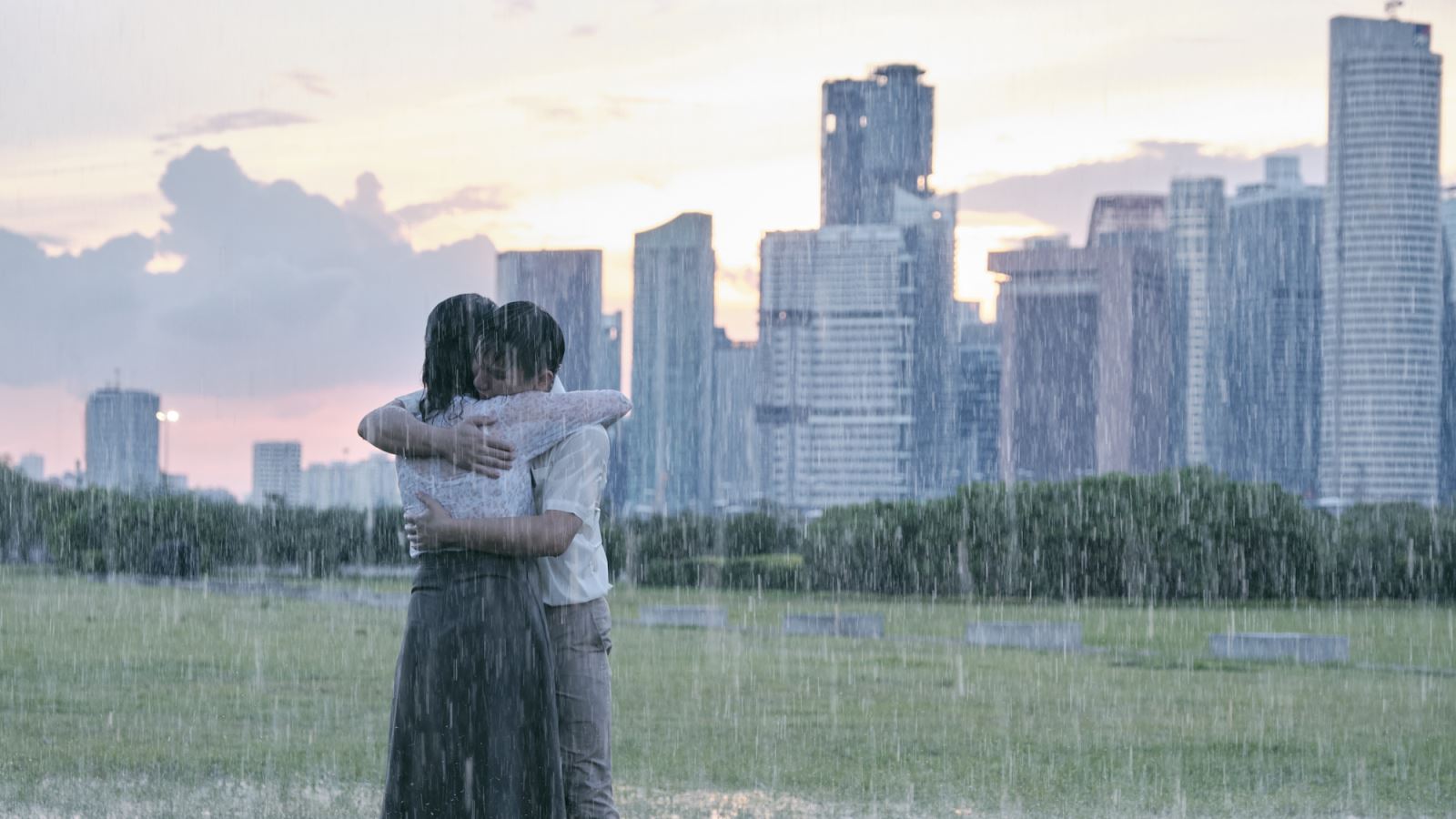
"Tropical Rain" stills
After I screened it online at that time, I was surprised to meet many viewers. Didn’t I just watch the crisis of a 40-year-old middle-aged female teacher? Why does the director look so young? I got some feedback that I am very calm and mature when making movies, and I am often asked why I don’t make a younger and more free movie?
In addition, there is nothing to do at home during the epidemic. I read a lot of content on the official account and Douban. I saw many young people expressing their emotions. I also watched a lot of personal Vlogs on station b. What impressed me is that they have many Confusion, anxiety, dilemma, and uneasiness. So I tried to understand this group, and filmed a story of three wounded young people, how they healed each other in a short encounter and journey.
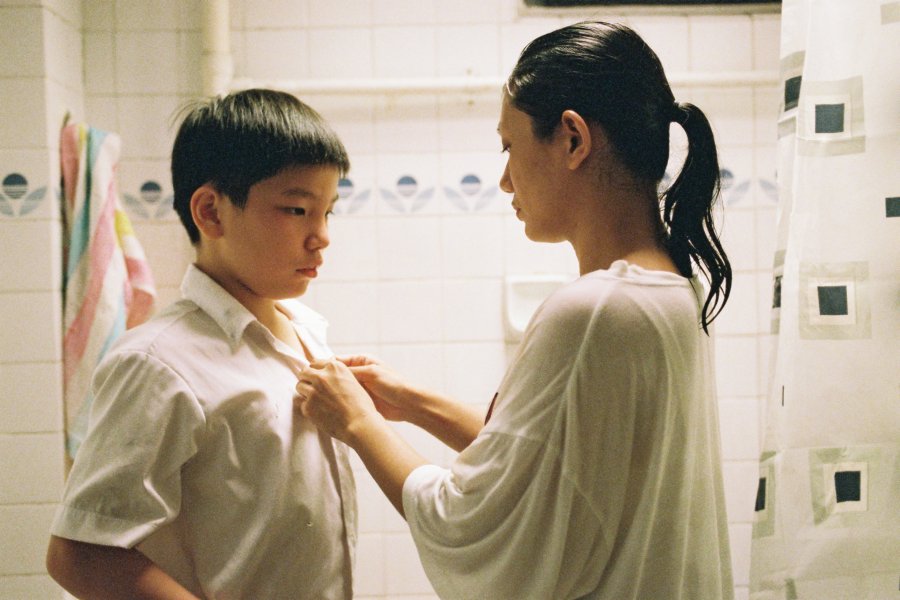
Stills of "Mom and Dad Are Not Home"
The Paper: But in fact, there are little boys in "Parents Are Not Home", and there are high school students in "Tropical Rain". There is no shortage of young people in your movie. What are the similarities and differences between "Burning Winter" and your previous works? where?
Chen Zheyi: It should be said that "Burning Winter" is very different from my previous works from the image to the rhythm, to the music. Audiences who have watched "Parents Are Not Home" and "Tropical Rain" will find that there are almost no soundtracks in these two works. But I knew from the beginning of the creation of "Burning Winter" that it needed music to express a lot of emotions, and a soundtrack teacher joined in very early on. I would send him clips while I was filming, he would compose the score, and we would talk on the phone every night.
Regarding the processing of these three characters and images, I will use a more abstract way to describe several plights of contemporary young people. "Tropical Rain", including my third film "Life Away", are very realistic films. But this time I made "Burning Winter" I let myself point out this emotion in other ways, and the state and emotion I want to capture has no answer, and it is very vague. The three people in the film are looking for a kind of spiritual freedom, and I am the same, and I don't have much to restrain myself.

Stills of "Life Adrift"
The Paper: So the "old soul" projected a look back at his youth or some state at that time?
Chen Zheyi: It's not that I project my own state, but another possibility of mine. Because my youth was not so surging, so vigorously young. Compared with the movie, I am more well-behaved. I got married at the age of 25, and I don’t have a rich relationship history, I don’t have that kind of entangled love, and I haven’t tried some dangerous emotions beyond the boundaries. So my youth was quite comfortable, but I will always be in that kind of anxiety.
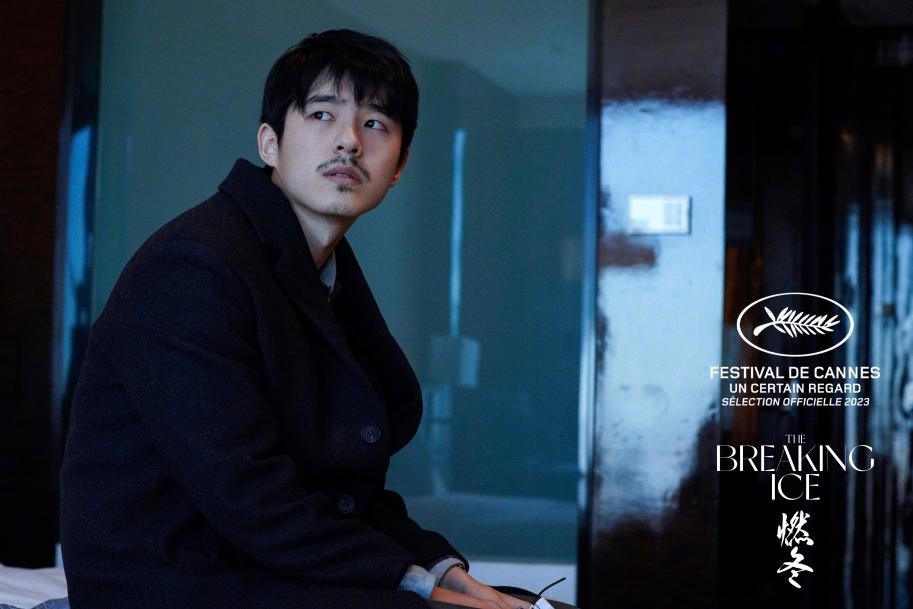
"Burning Winter" stills, Haofeng (played by Liu Haoran)
Three defeated people, young people all over the world have a resonance
The Paper: The three actors agreed to act without even reading the script. What was the working condition and atmosphere like on the set?
Chen Zheyi: The three of them trust me very much, and we are all willing to contribute and take risks together. Everyone is very serious at work, but apart from being serious, as long as we are taking snow scenes outdoors, they will always play with the snow and throw snowballs at each other. But I think they are very serious, and because I am very serious when filming, many times the state of the director will drive the state of the actors. And I am very strict with them and have very high requirements.
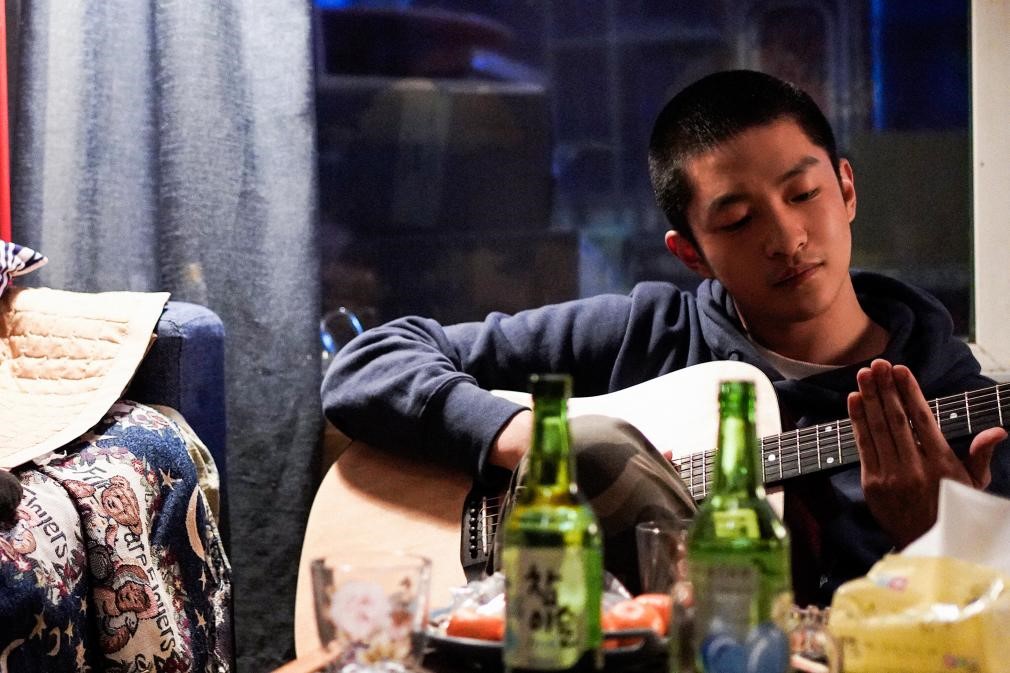
"Burning Winter" stills, Han Xiao (played by Qu Chuxiao)
The scene where the three of them played and sang with the guitar may look smooth and natural to the audience, but in fact we filmed it for a long time, and there are a lot of emotions hidden in it, which is not so direct. It has to be a turning point from Zhou Dongyu's drunken madness in the front to the back. The scar in her heart, Liu Haoran was also feeling such an emotion while watching her from behind.
Maybe everyone has always thought that this shooting is very casual, but I am actually a super invincible control freak, and I am an Aries. So it is not the so-called "impromptu creation". We shoot whatever we see on the spot. It has a certain preparation time, of course it will be relatively short. And every day I shoot a scene, there is also a script that has been completely customized before, and of course we will also modify it during the shooting process.
The Paper: In your construction, why are these three young people, and how representative are they?
Chen Zheyi: I hope to show three defeated people. One is a former athlete who was defeated by a dream. She only had such a dream since she was a child. She was cultivated and selected, but she was injured and retired in the end. I don't know how to face my family and those around me. The second one is Haofeng played by Liu Haoran, who was defeated by what we call a very traditional East Asian mechanism. He was forced to study since he was a child, and he had to go to a good school and find a good job. , but there is no sense of existence, very empty. The third is the role played by Qu Chuxiao. He has no intention of going to school since he was a child. He thinks that he has no talent and is not better than others, so he simply doesn't compete with others. He gave up before being defeated. .
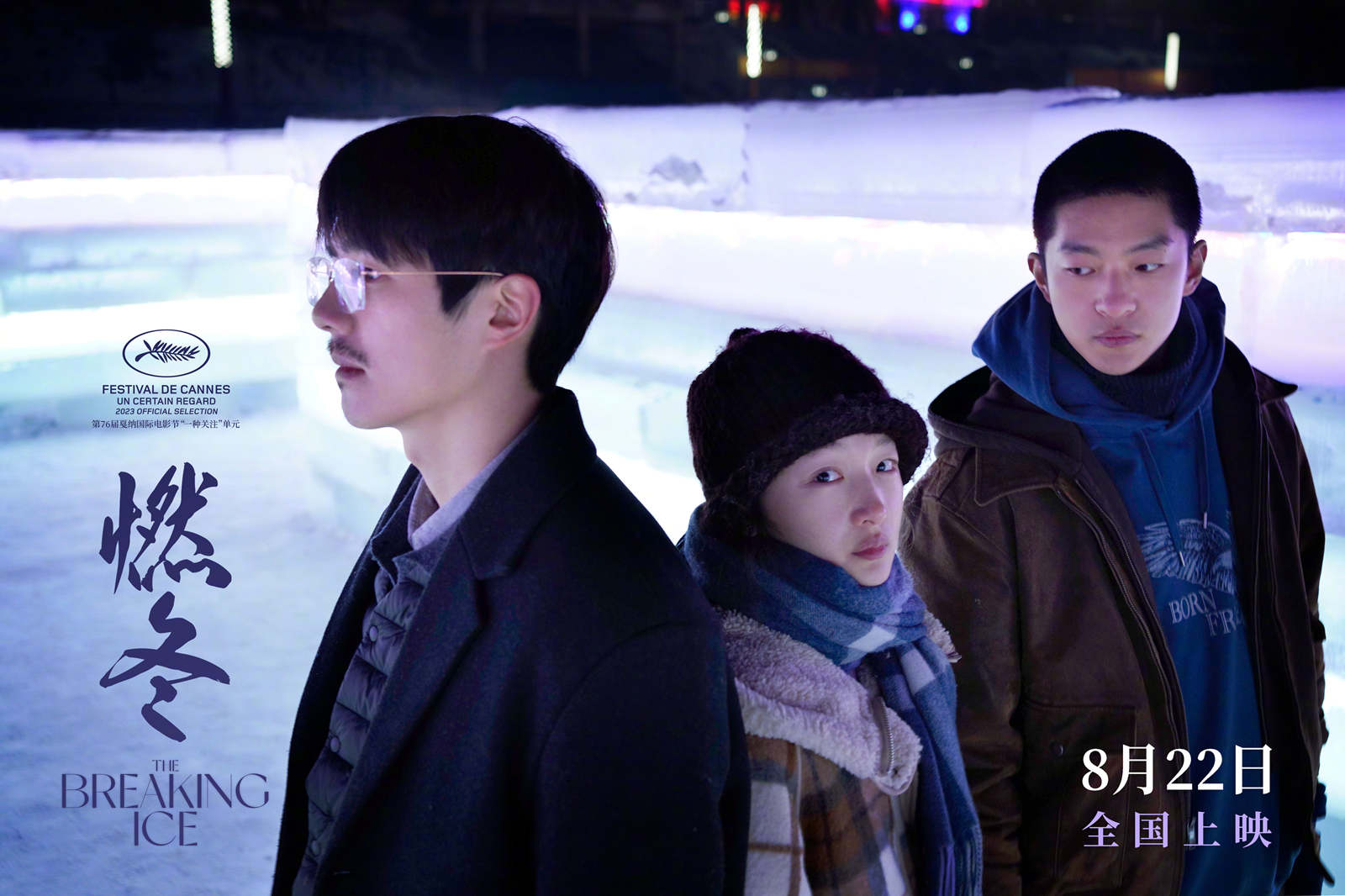
Stills of Burning Winter
The Paper: As a director with an international perspective, is there any particularity in the status of Chinese young people?
Chen Zheyi: I was surprised that when we premiered in Cannes, many people, even the media in Italy, North America, and South America said that they saw the young people in their countries. And I just came back from the Melbourne International Film Festival in Australia, where I was a judge for their main competition, and I also showed two "Burning Winter" there. There will be some local post-00s students, including students born and raised in Australia, and students who have studied in Southeast Asia. Actually, I don’t know why they have a deep impression on Haofeng.
So I think it is not just a state of Chinese young people, it may be a common state of many young people in the world. In particular, the world's prices are getting higher and higher, and houses are getting more and more expensive. This is something everyone has to face. We are also in an Internet age now, and young people grow up completely in the Internet age. I didn’t come into contact with the Internet until I was 12 years old. I had my first E-mail, but my child knew it when he was 6 months old. How to press my mobile phone password. The world they face is completely different from the past.
Companionship and understanding are powerful, relationships don’t have to have answers
The Paper: Many people will think of "Ancestor and Zhan" when watching this film, but the emotional entanglement of the three people in that film lasts most of their lives, while "Burning Winter" is short-lived. Your understanding of the long-term and short-term relationship of this kind of relationship how is it
Chen Zheyi: When I was creating, when I said I wanted to shoot young people, I thought of Truffaut’s "Ancestor and Zhan". I watched it again to see how it constructs the whole story and what kind of character line is inside. , but it doesn't mean that I want to make another "Ancestor and Zhan". In fact, I also considered a movie that moved me very much. It was a British director I admired very much, named Andrew Haigh. Met each other and had a relationship, but after the weekend one of them was going to the US for school or work. There will be a kind of reluctance, but you remember the short-term beauty.
The three people in "Burning Winter" won't stay for the other after a short warm-up, but they have left something in each other. And I don't think such a relationship should be eternal. If the relationship between these three people is eternal, it will not be beautiful, but because of its short existence, some beauty is left.
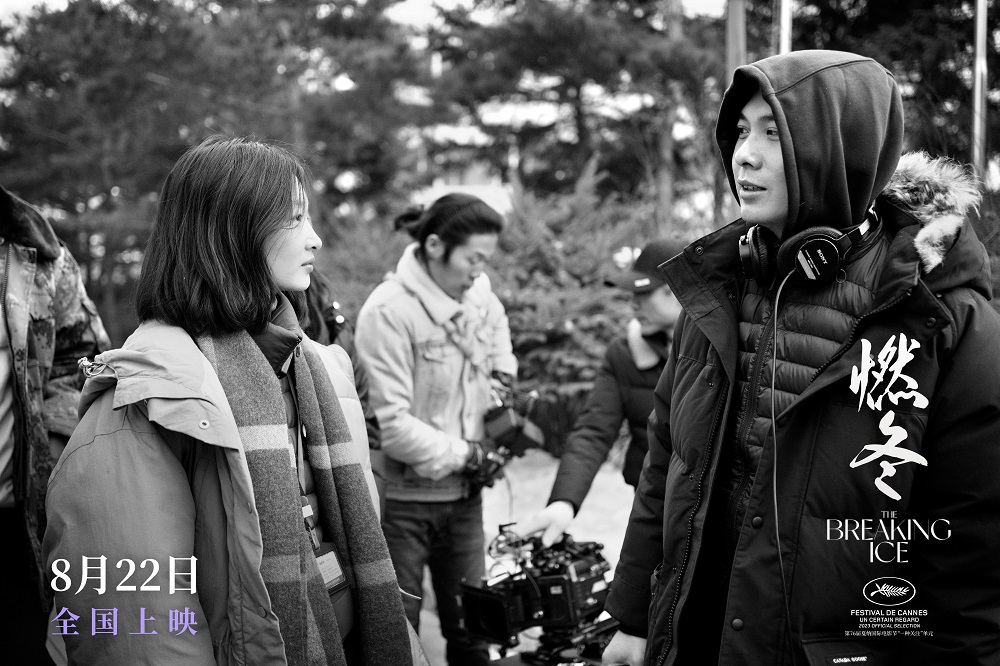
Chen Zheyi (right) on the set of "Burning Winter"
The Paper: The plight of everyone in the film is actually unsolvable. How do you understand the sense of strength that each of them finally set out on the road?
Chen Zheyi: In my opinion, it is very important that they get a kind of care for each other. Many times, it is not to find answers, but to know that someone cares about you, which can give people strength. And I'm an optimist. At the end of all my movies, even "Tropical Rain", the main character is very bleak at the end, but she still has a kind of warmth. I believe that there is still hope in life, no matter how dark it is now. , there will still be light.
The Paper: The Northeast is a very important "role" in the whole movie. What role does the environment play in your creation?
Chen Zheyi: My works have always been from the perspective of outsiders, so I also set these three characters as outsiders. Although we went to the Northeast, we didn't make any characters from the Northeast. After I went to the Northeast, I wrote a lot of details. Although I have never been so cold since I was a child, what I saw and felt was a kind of "warmth". I was really surprised. That’s why I shot Yanji and Changbai Mountain quite romantically. You may have a different impression of Northeast China in film and television. They are all shabby, backward, and dirty. Many crime films take place here. But that's not what I see.
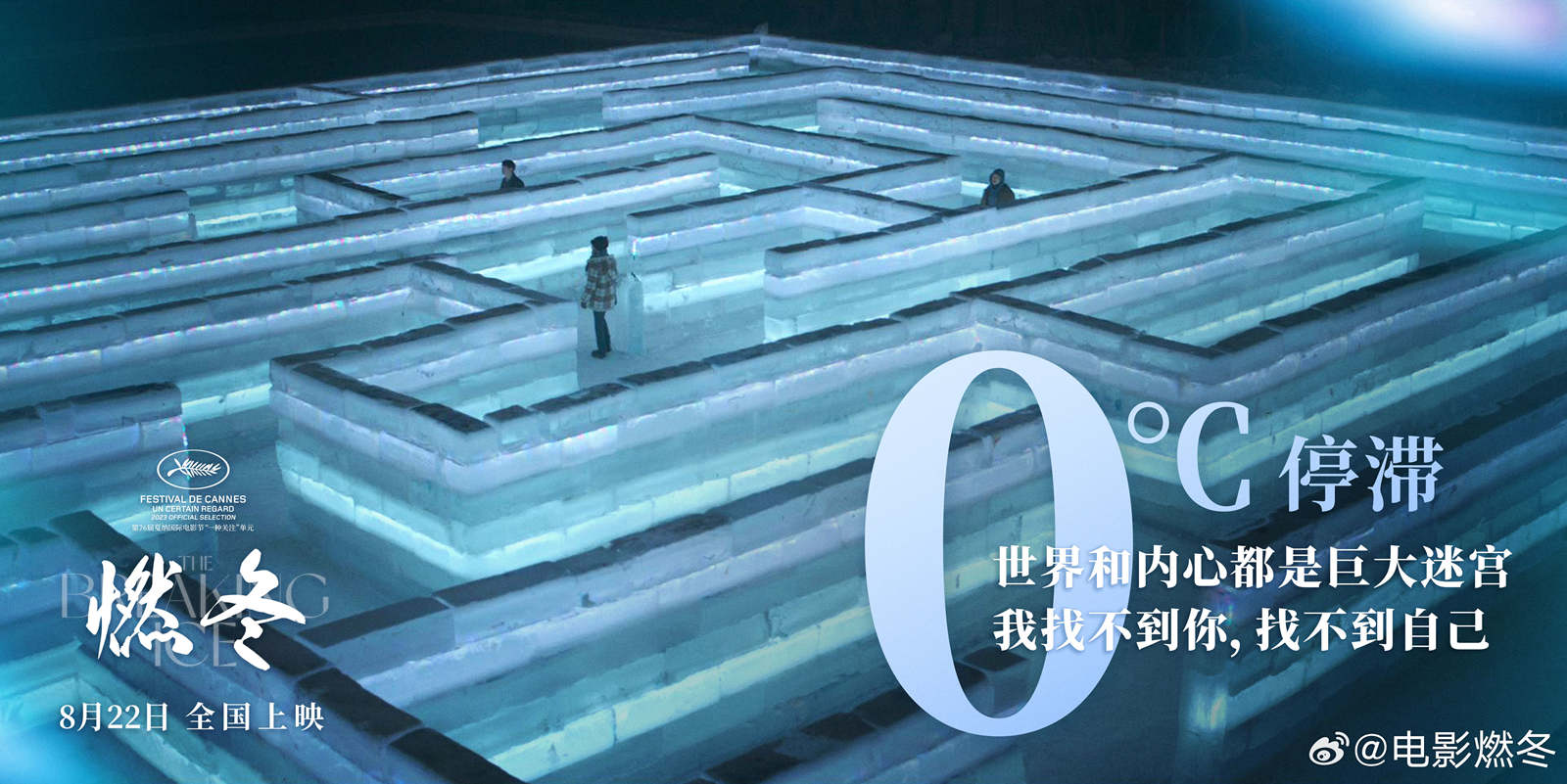
Stills of Burning Winter
Including the ice cubes that appear all the time in the film. From the very beginning, I always thought that we were going to shoot a winter story. Maybe when I mentioned winter, I would immediately think of snow, but I would think that snow has been photographed too much. And it's too romantic, so I thought about another thing in winter? It's ice. So I held this concept and thought about the process of how it freezes. As long as it is below 0 degrees Celsius, it may freeze in two or three hours. But when this piece of ice is taken out, with a little sunlight and a little temperature, it turns into water again , I just want to use it to express the conclusion of these three people. In a short period of time, it was as intense and fiery as midsummer, and very complicated emotions, but soon it disappeared and melted, but it was definitely in their hearts stayed.
The Paper: There are several erotic scenes in the film, and everyone will discuss that it is considered "large-scale" in domestic theaters, but in your consistent creations, eroticism is a very important element. So what role does "desire" play in the lives and predicaments of people that you understand and construct?
Chen Zheyi: I think that once two souls really have a deep intersection, they will have a kind of physical intimacy. It's like why would I want to hold my baby? I could just sit there and follow him, but why would I want to hug him? I think that as long as there is a spiritual connection between people, they will have further interactions.
The last bathroom scene in Burning Winter, I remember when I wrote it was a struggle between desire and reason, because Haofeng knew he was going to leave. So this scene is actually about parting. He knows that this relationship cannot be permanent, but short-lived. The scene in the bathroom is my favorite scene of the whole movie, it has a lot of mixed emotions.
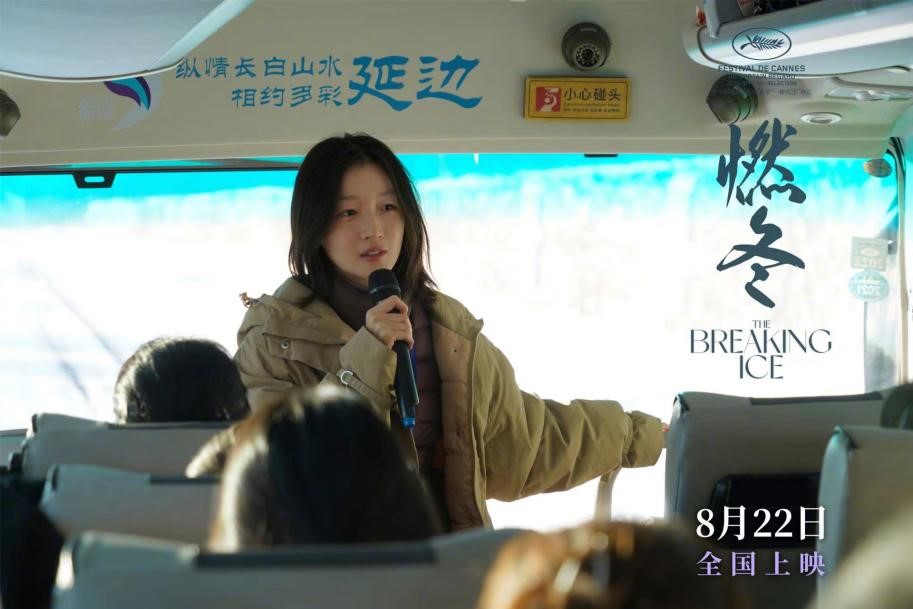
Stills from Burning Winter, Nana (played by Zhou Dongyu)
The Paper: How to interpret the bear imagery?
Chen Zheyi: I like Changbai Mountain very much. I was really fascinated by Changbai Mountain Tianchi, so I wanted to arrange the ending in Changbai Mountain. So I searched a lot of stories about Changbai Mountain, and found a very famous legend of the Korean people, the story of a bear and a tiger, and I really wanted to take a picture of it. And I would think that their last so-called healing should come from an encounter with a greater power and nature, so let them meet a bear. And when I was writing, I thought it was a very special spiritual interaction between humans and animals. The bear could smell her wounds, her sadness, her wounds. Xiong understands her, and heaven and earth accept her.
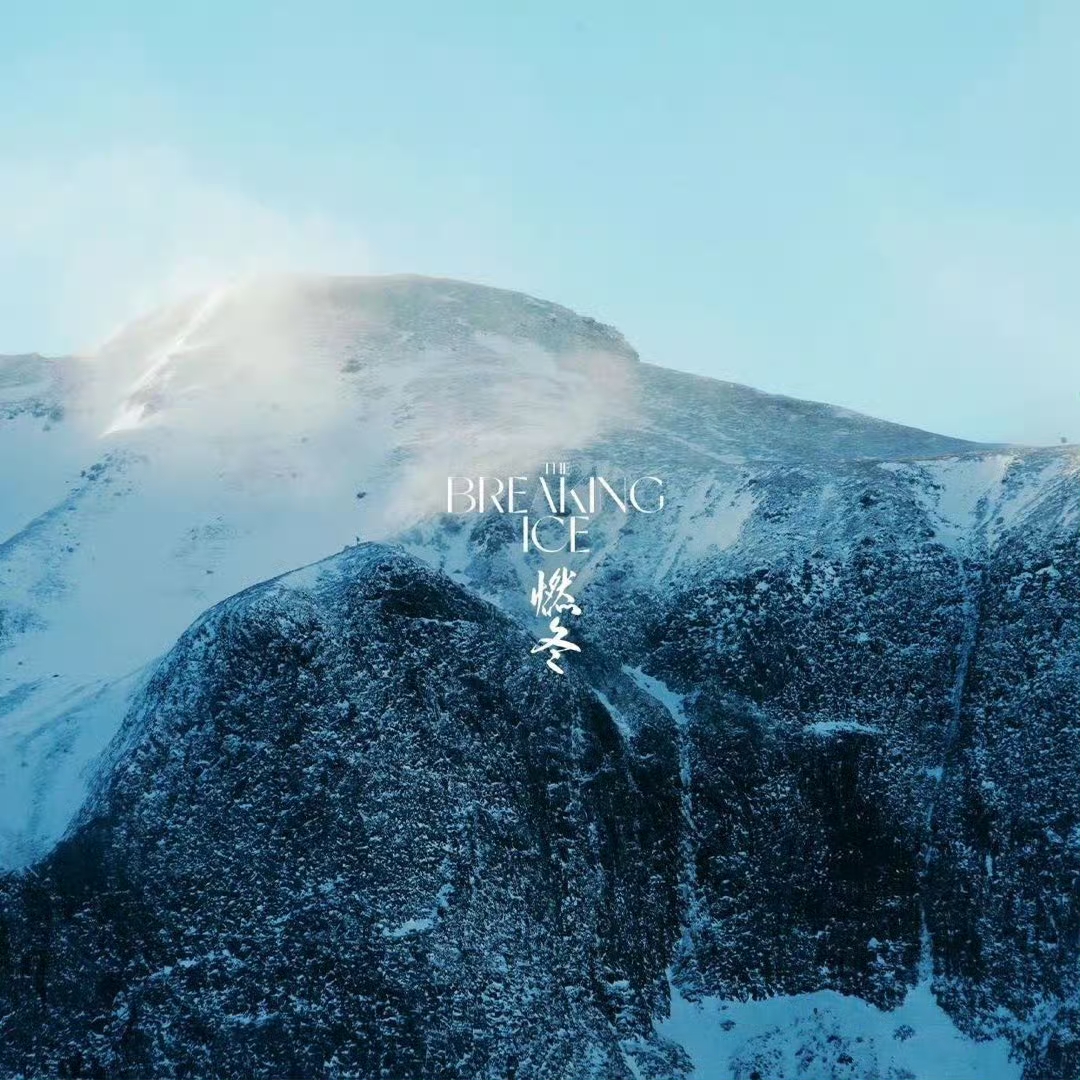
Stills of Burning Winter
The definition of love is not so simple
The Paper: This kind of more open and free emotional state is very common in the lives of contemporary people, but mainstream movie audiences seem to follow a more "correct" fantasy. The film chooses to be released on Qixi Festival. Are you worried about it and Are the audience's expectations for romantic movies conflicting?
Chen Zheyi: I have given myself a lot of boosters. I hope that the audience will watch this movie with a more open-minded attitude and state of mind. Because I think the definition of love is not that simple, even the emotion itself is not simple, there is no so-called black and white, the emotions in all my movies are equally complicated.
The Filipino maid and the boy in "Parents Are Not Home" are not only the relationship between a nanny and the employer, but also like friendship, and also a bit like the relationship between a mother and a child. But in a scene where they played, I would feel that the boy fell in love with her, and it felt like his first love, so the parting was so profound. The same is true for "Tropical Rain". Is there really love between the teacher and the student? It's not friendship either, is that mother-child relationship? It seems not. Even if you watch "Life Adrift", do you think it is love between these two people? But I feel that it goes beyond friendship, but I don't think it's straightforward that they are in love.
So every time I look at people's emotions, emotions, and relationships between people, I don't look at them with a kind of moral criticism, or a so-called mainstream value. Because why are people interesting? It's because people actually don't have the so-called black and white, they are all in a gray area.
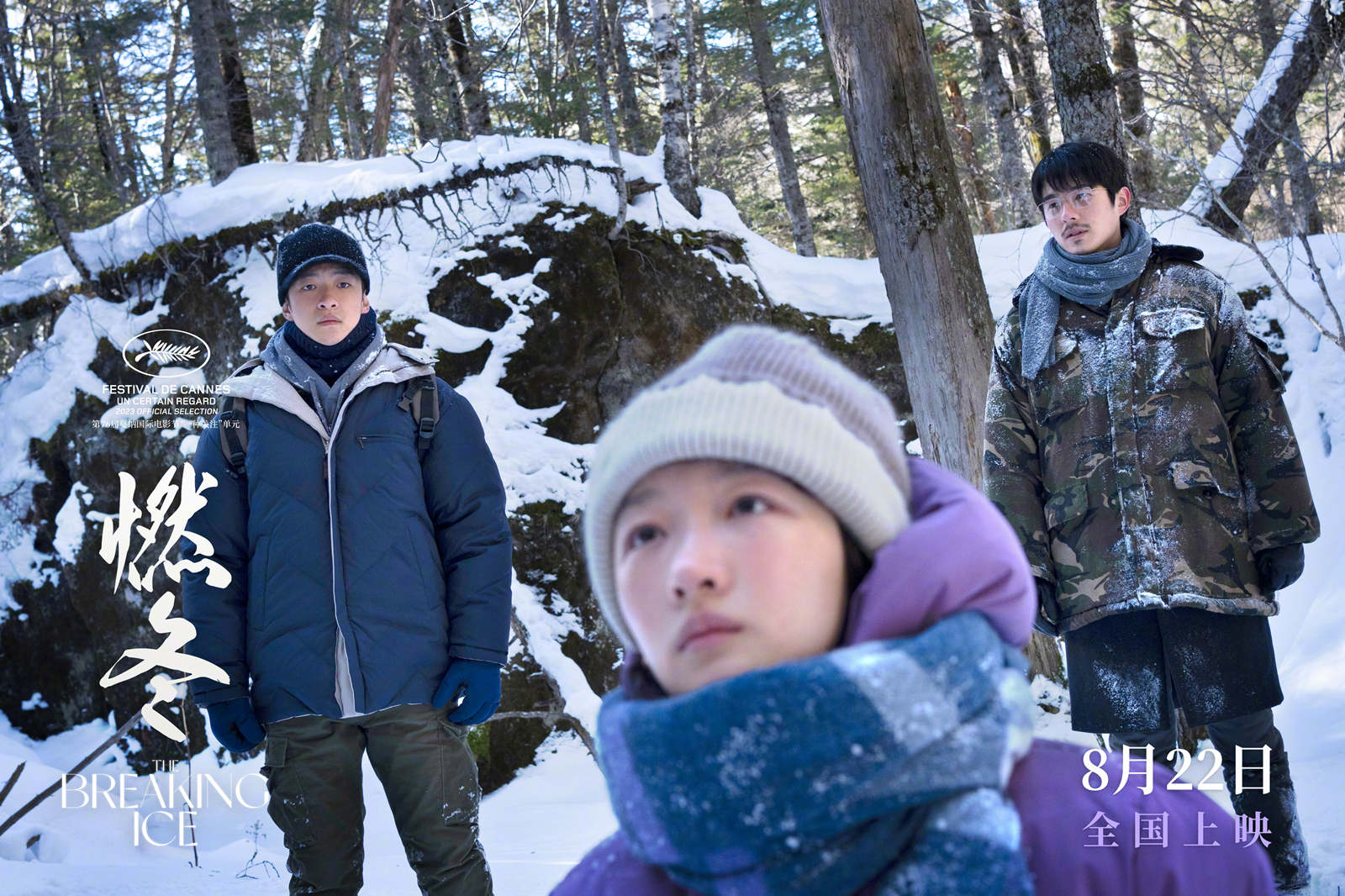
Stills of Burning Winter
The Paper: After filming this film, you quickly put yourself into the creative process of "A Drifting Life". After going through a very different creative method like "Burning Winter", what kind of impact does it have on your subsequent creations? Influence?
Chen Zheyi: "Burning Winter" let me find a kind of self-confidence. I found that I still have a solid foundation. When writing a story with local materials, how to use these different elements to construct a complete story line and character line. How to deal with these emotions well without doing too delicate storyboards on the scene. I suddenly believed that I could do something like this, but I would have been worrying about getting everything ready and getting it right, and I was seeing a more confident and relaxed version of myself.
The Paper: Did you liberate your obsessive-compulsive disorder a bit, so you don't have to spend three years writing scripts in the future?
Chen Zheyi: Then I hope that I don't have to write the script myself in the future, because it is too painful and tiring, and the bitterness is because every time I write a story, I will be very close to the characters in it. But in fact, when filming "A Drifting Life", its creative method was the same as before. It also took two and a half years to adapt the novel and prepare for shooting. When I was creating the script, its lens language had already been determined to be like that. The same reason why the lens language of "Burning Winter" has a different taste, because it is different in the way of creation.
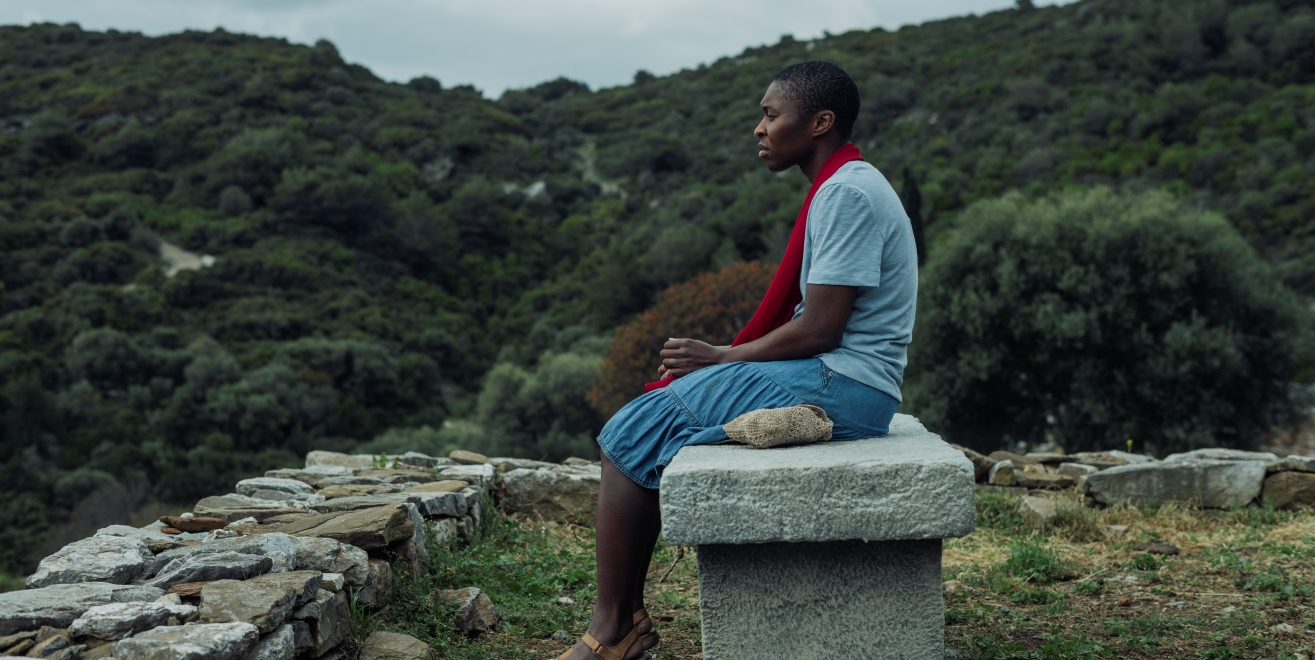
Stills of "Life Adrift"
But I am thinking, if I shoot so many tragic events like "A Drifting Life", I am not sure if I will suffer from depression or even commit suicide, because many times I bring too much emotion into a work . So my next attempt may be to shoot a comedy. Although "the core of comedy is tragedy", at least I may laugh more than cry during the shooting.
The Paper: You said earlier that you would be anxious about a certain "death" of the movie. Now that the overall box office market is improving again, and your creations have started one after another, has this part of the anxiety been cured?
Chen Zheyi: The recent state is also very anxious. It's not because the movie is released, I still wonder if the era of movies has changed? The movie theaters are busy, but none of them are the kind of movies I would particularly yearn for myself. I would think that the films I like won't get enough understanding and resonance in this era? I'm starting to feel a little bit depressed, I'm a person who never wants to "lay flat", but I've really been thinking about it recently. After lying down, I will cook and take care of the child. I may teach him not to make movies and not to fall in love with movies.


